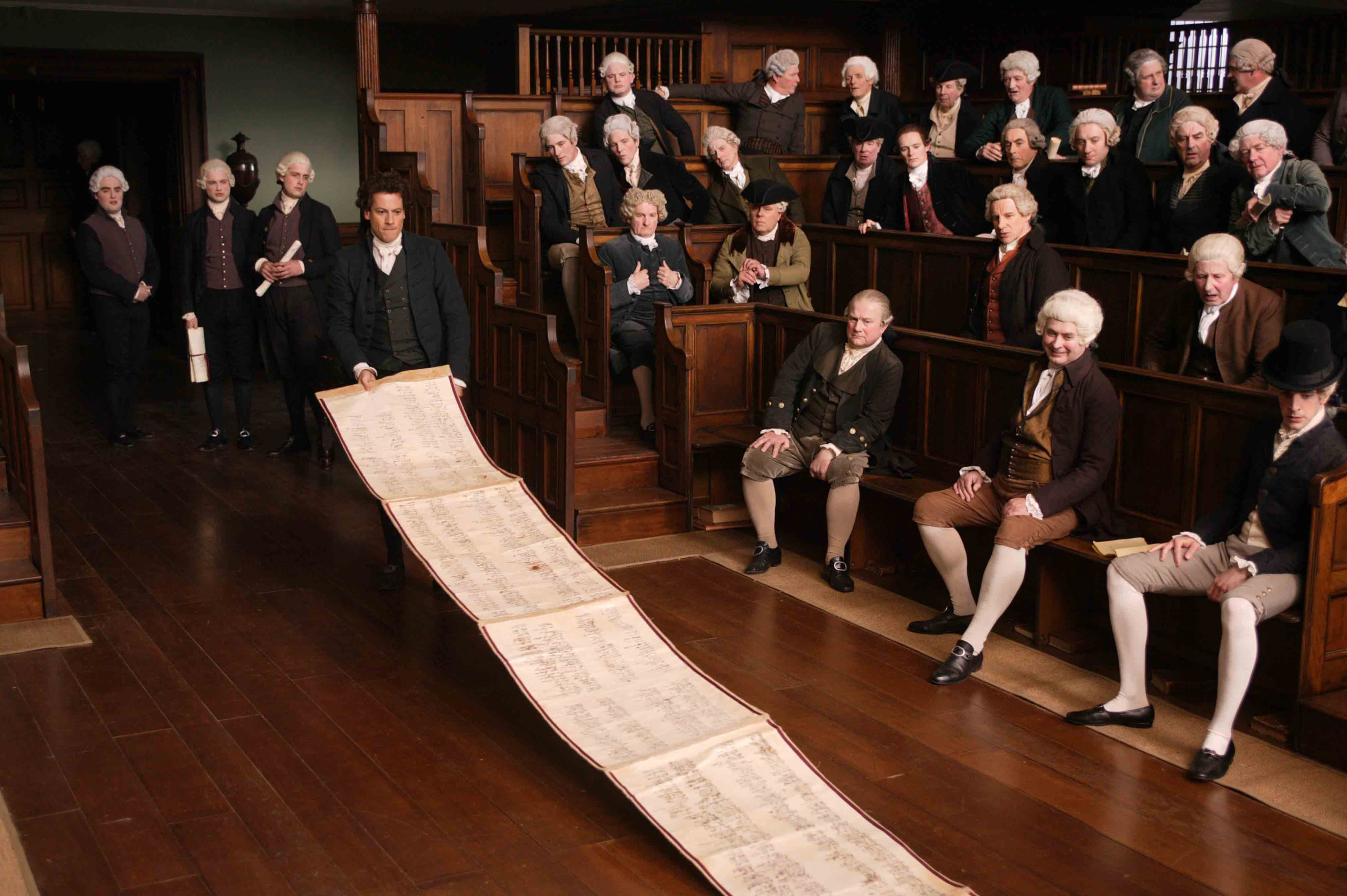
NASHVILLE, Tenn. (BP)–William Wilberforce isn’t a household name in America, but an upcoming motion picture is trying to change that.
“Amazing Grace” is the story of Wilberforce, a devout Christian and a member of the British Parliament who, beginning around 1787, sought to do what then seemed impossible — lead the British Empire to abolish the slave trade, what supporters called the lifeblood of the economy. He failed year after year before, finally, in 1807 — 200 years ago — his bill became law, abolishing an evil that had resulted in the enslavement and death of millions of Africans. Shortly before his death in 1833, he learned that another bill — to abolish the practice of slavery itself in the empire — would soon become law
The movie -– to be released Feb. 23 and rated PG for mild language — gets its name from Wilberforce’s friendship with John Newton, the author of the hymn “Amazing Grace” and a former slave trader who — several years after becoming a Christian — teamed up with Wilberforce to abolish the trade.
Christian leaders today say the church could learn much from the way Wilberforce’s faith drove him to moral action and kept him from giving up, despite obstacles.
“Anyone would be uplifted by seeing this movie, and people of faith should be inspired by it,” said Southern Baptist Ethics & Religious Liberty Commission President Richard Land, who saw the movie at a January screening. “I thought it was an excellent movie that shows what happens when a man of true faith takes seriously the command to be salt and light. Wilberforce should be an inspiration to every person of faith who takes seriously the obligation, responsibility and commission to make a difference in society.”
The parallels to the contemporary fight against abortion and the modern-day worldwide slave trade should not be overlooked, Land noted.
“You’d have to be deaf, dumb and blind not to see the parallels between, first of all the abortion issue and slavery, and, second, the general condition of the culture then and now,” Land said. “As Secretary [of State Condoleezza] Rice stated when she spoke to the [Southern Baptist] Convention, slavery didn’t end in the 19th century. It’s still alive and well today — both sexual and non-sexual slavery.
“In many countries around the world, there is unfortunately a very lucrative and major trade in human flesh for sexual purposes and also for involuntary labor. And it must be stopped. I’m happy to be able to say that the United States has taken a lead in leading the international community to address this issue directly.”
Born in 1759, Wilberforce graduated from St. John’s College in Cambridge, where he became friends with William Pitt, the future prime minister. At the age of 21, he was elected as a member of Parliament, although by his own admission he did very little as an MP and was somewhat lazy. All that changed when, through the reading of the New Testament, Wilberforce became an evangelical and began searching for God’s will for his life. Wilberforce considered becoming a clergyman, but Newton and others told him he could best serve God in Parliament, where he could impact other legislators with his great oratory skills. Through the influence of Thomas Clarkson and other abolitionists, Wilberforce decided to use those skills to end the slave trade.
“So enormous, so dreadful, so irremediable did the trade’s wickedness appear that my own mind was completely made up for abolition,” he wrote. “Let the consequences be what they would, I from this time determined that I would never rest until I had effected its abolition.”
The slave trade was an evil almost beyond description. Slaves were taken from the west coast of Africa on a two- to three-month voyage to the West Indies, where they were sold. Conditions for the slaves aboard the ship were atrocious: They were kept under the deck, chained side by side. According to the Wilberforce 2007 campaign, men had a space roughly six feet long, 16 inches wide; women had a space two inches shorter and the same width. They often had to lie in feces and urine, and many died of disease during the journey. It is estimated more than 10 million Africans were put aboard the ships, with perhaps more than 2 million dying during the journey.
Although Wilberforce’s task at the outset seemed impossible — many argued the British economy would collapse if Wilberforce succeeded — by 1807, he was considered a hero. When his bill passed Parliament that year, MPs gave him a standing ovation.
The movie also touches on other aspects of Wilberforce’s life — his love of animals, his desire to reform society’s manners and his perpetual bad health, which he treated at the time with opium — then a common drug to which he became addicted.
The movie’s organizers are asking churches to sing “Amazing Grace” and promote the movie Feb. 18, the Sunday before its Friday release. Organizers also are asking people to sign a petition online at www.theamazingchange.com seeking the end of modern-day slavery.
“[Wilberforce’s] task at the outset seemed impossible, humanly speaking,” Land said. “The power and influence of the planters and all of those who benefited from the slave trade were enormous. And yet, he continued to chip away at it, in righteous indignation, until finally it imploded of its own moral indefensibility.”
–30–
More information about “Amazing Grace” is available at www.amazinggracemovie.com.

















